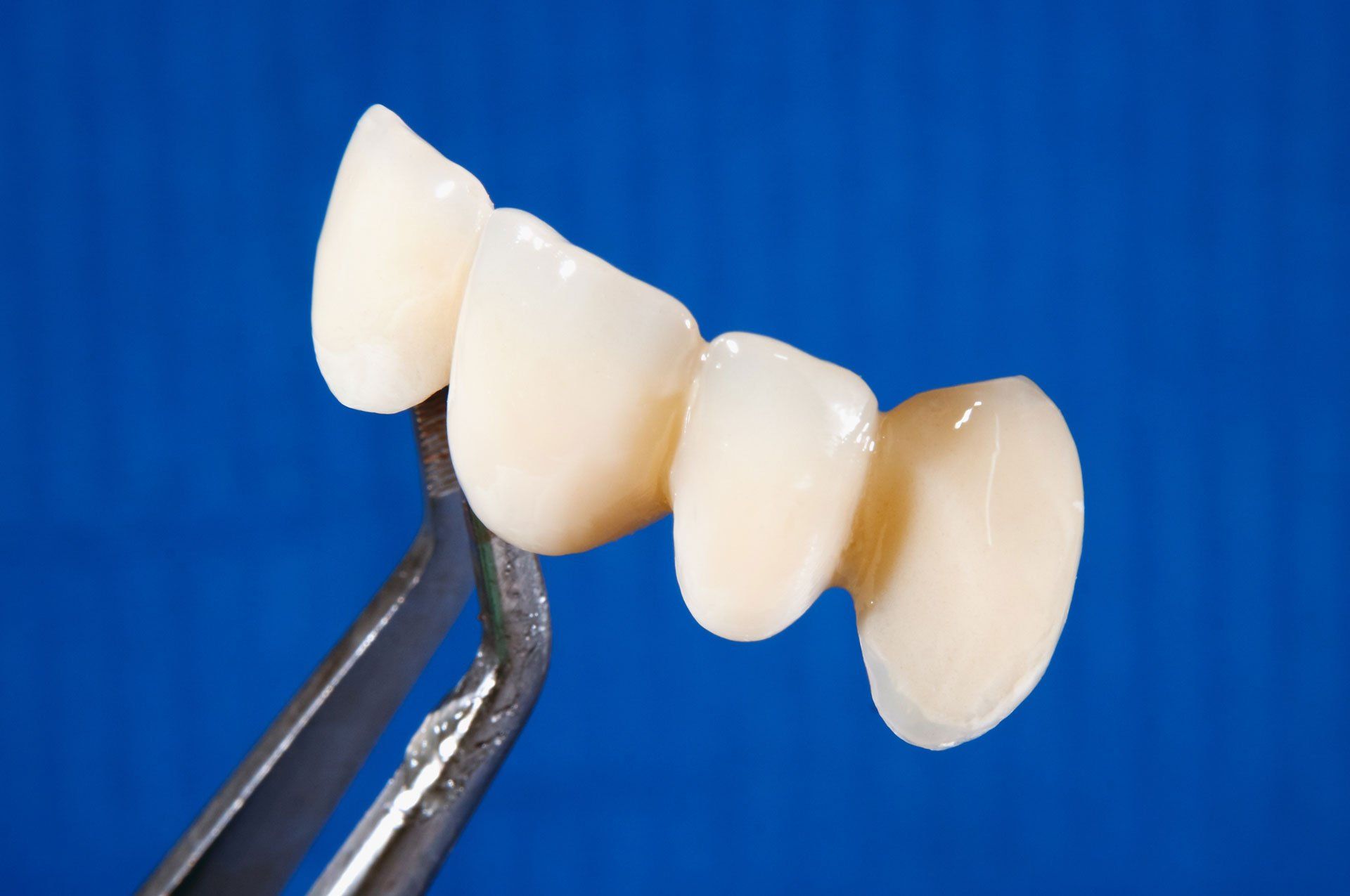Most dentures can last up to
ten
years. While visibly chipped and broken dentures are a definite signal it's time to replace a set, there are more subtle indicators your dentures have a problem. Seek your dentist's assistance when something goes wrong with your dentures. Check out these three surprising signs your dentures might need professional help.
1. Bad Breath
An abscessed or infected tooth or a meal laden with garlic are common reasons for bad breath. Morning breath is also normal if you have not yet brushed your teeth. However, bad breath can also be an indicator your dentures need attention.
Dentures easily trap food along the gums and between teeth. Regular cleaning and soaking are simple measures that keep them clean and help prevent bad breath. However, dentures that don't fit well can cause your mouth to produce less saliva, become dry, and foul your breath. Also, poor-fitting dentures may wear tiny sores in your mouth that become infected enough to cause bad breath.
If you clean your dentures daily but still experience persistent bad breath, talk to your dentist about how your dentures fit. A simple adjustment can make a big difference when your mouth produces the right levels of saliva or your dentures stop creating irritating, infected sores.
2. Sore Mouth
You can expect your mouth to need time to adjust to new dentures, which can feel heavy or strange. Additionally, you can feel minor soreness in your gums and mouth as you get used to chewing and speaking with dentures. As time goes on your mouth will adjust and soon you won't be bothered by your new teeth.
However, new or sudden soreness can be a sign that something is not right. Soreness can manifest in a variety of areas such as your gums, the soft tissue of your inner cheeks, the tongue, and even your jaw. Often poor-fitting dentures press unevenly on your gums and create pressure sores. Irritated gums are red and inflamed or may even bleed.
Dentures may fit also differently due to bone reabsorption. As time passes, the shape of your jaw beneath your gums changes and affects the original fit of the dentures.
Dentures with uneven surfaces or of poor workmanship can rub your mouth and cause canker sores or oral infections like thrush, or candidiasis. Thrush is a painful fungal infection that causes pain, redness, and irritation of your gums beneath your dentures and may affect the way you chew and speak.
Tell your dentist about any new or sudden pain and soreness from your dentures. He or she will probably recommend a new denture fitting.
3. Speech Changes
Remember when your new dentures caused you to rethink the way you speak? Adjusting to dentures makes some wearers articulate differently at first, but most quickly perfect their speech with practice.
However, you may notice your speech changes or have other people tell you your pronunciation is confusing. You may whistle or lisp when you pronounce the letter S, or experience trouble with similar-sounding letters. For example, F and V sounds are indistinct, as well as T and Th. Poor pronunciation can make others unable to understand you well.
Speech changes are indicative of poor-fitting dentures. If you notice changes in your speech, talk to your dentist about an adjustment in tooth or palate spacing. Sometimes a bit of thinning or grinding will make dramatic changes in the way you articulate.
Visit
Gregory B. Halls Denture Center
for more ways to make your existing dentures more comfortable. We can help with denture fittings or even help you find out if you need a new set.







